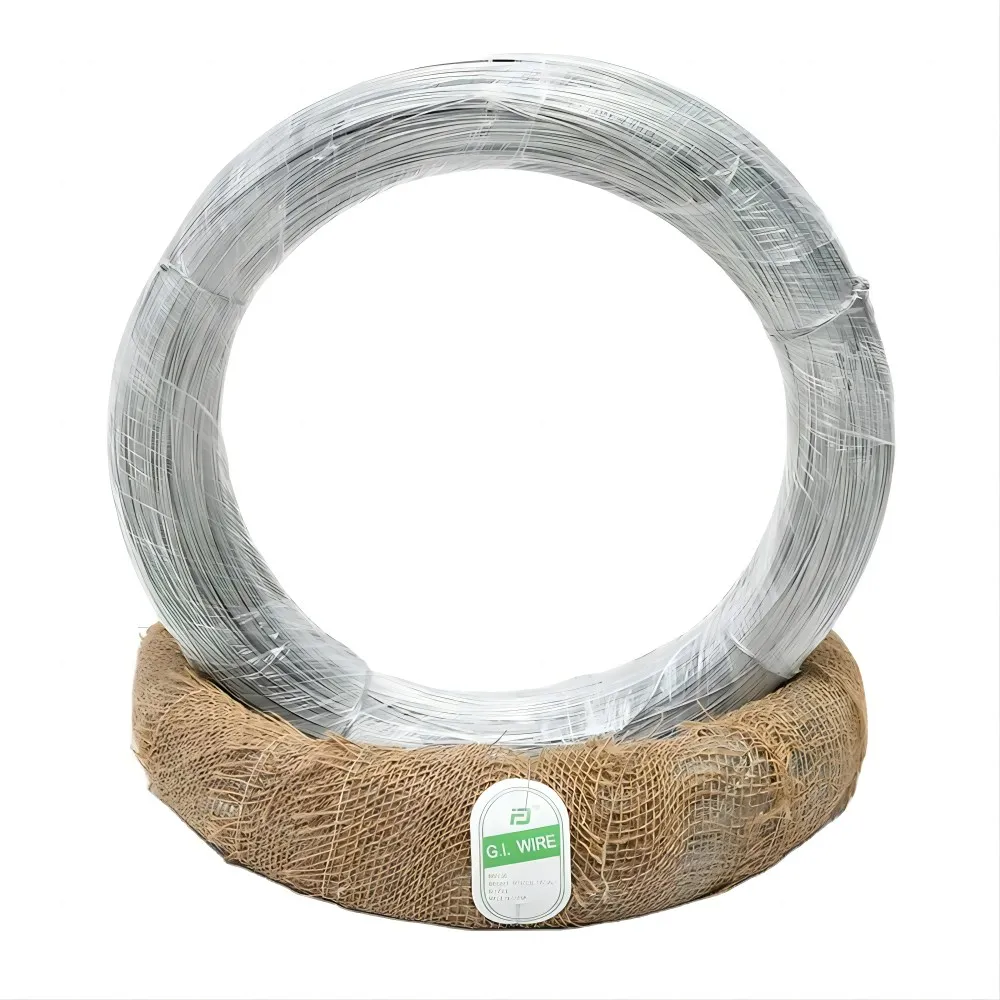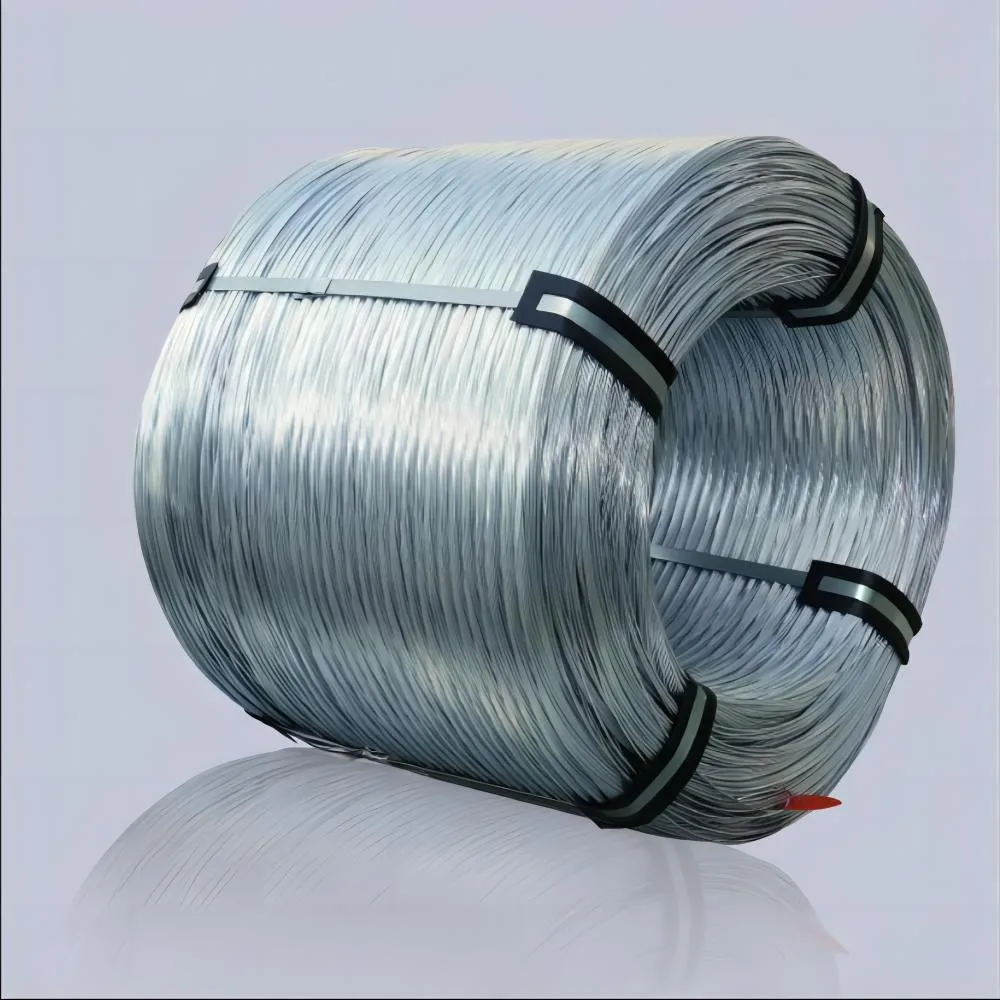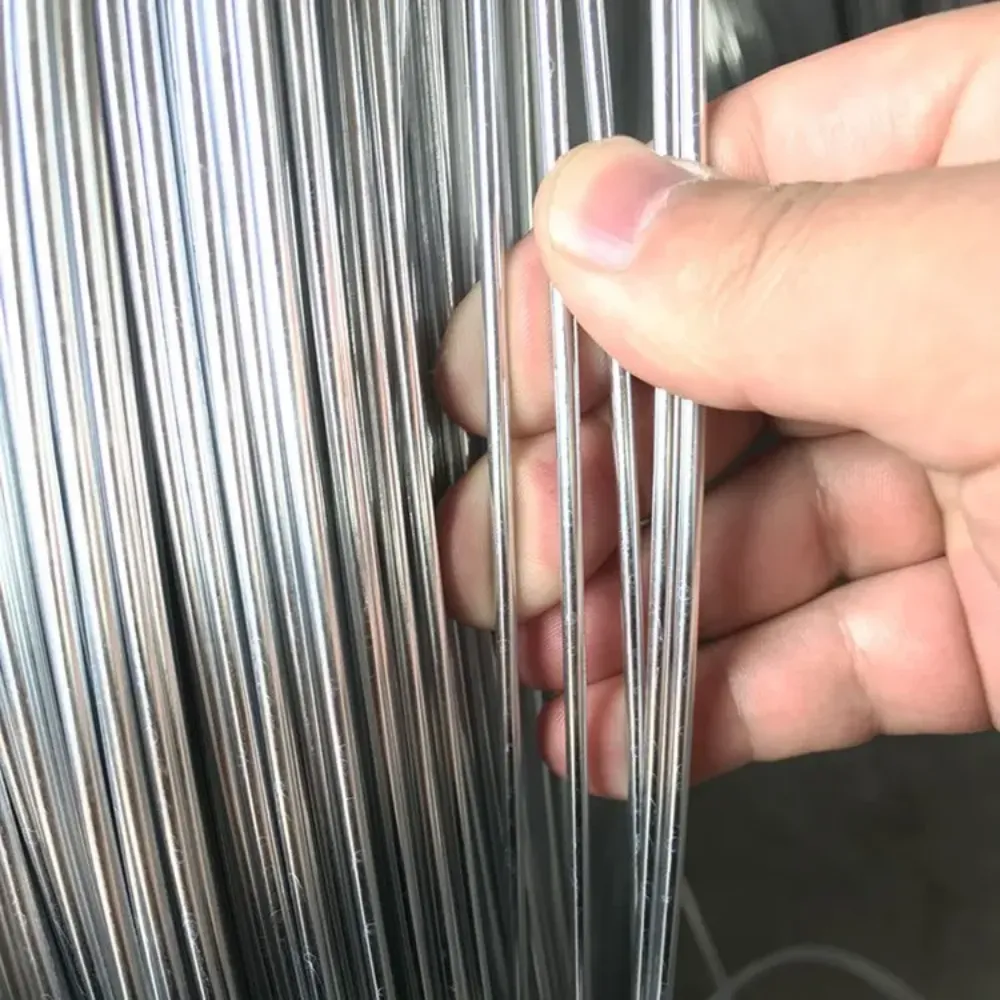Premium Galvanized Wire: Durable & Corrosion Resistant
Understanding GALVANIZED WIRE: A Cornerstone of Industrial Durability
In the demanding landscape of modern industry, the longevity and performance of materials are paramount for ensuring operational efficiency and structural integrity. GALVANIZED WIRE stands out as a critical component, offering exceptional resistance to corrosion and an extended service life, making it indispensable across a multitude of sectors. This robust material is engineered through a sophisticated process that applies a protective zinc coating to steel wire, creating a formidable barrier against environmental degradation. Its inherent strength combined with unparalleled corrosion resistance ensures reliability in challenging conditions, from saline environments to industrial atmospheres laden with corrosive agents. Understanding the nuanced properties and manufacturing precision behind galvanized wire is key for B2B decision-makers and technical professionals seeking optimal material solutions for their critical projects.
The Advanced Manufacturing Process of GALVANIZED WIRE
The production of high-quality GALVANIZED WIRE involves a meticulous multi-stage process, ensuring superior adhesion and uniform zinc coating. It typically begins with high-carbon or low-carbon steel wire rods, which undergo thorough cleaning to remove impurities and oxides, often through acid pickling followed by rinsing and fluxing. The core of the process is hot-dip galvanizing, where the cleaned wire is immersed in a bath of molten zinc at temperatures around 450°C (842°F). This creates a metallurgical bond between the zinc and steel, forming a series of iron-zinc alloy layers beneath the pure zinc outer layer. This unique bond is what provides galvanized wire its exceptional durability and corrosion resistance, significantly extending its operational life compared to uncoated steel and making it suitable for industries like petrochemical and metallurgy where material integrity is critical.

Post-galvanizing, the wire is often wiped to control the zinc coating thickness and then cooled. Subsequent steps might include tempering or annealing, depending on the desired mechanical properties such as tensile strength and ductility. Quality control is paramount at every stage, with stringent inspections ensuring compliance with international standards like ISO 9001 (Quality Management Systems), ASTM A641 (Standard Specification for Zinc-Coated Carbon Steel Wire), and EN 10244 (Steel wire and wire products – Non-ferrous metallic coatings on steel wire). These standards govern everything from wire diameter tolerance and zinc coating weight to mechanical properties, guaranteeing consistent product quality. The sophisticated manufacturing ensures that each strand of GALVANIZED WIRE offers reliable performance in diverse industrial applications, making it a preferred choice for long-term structural integrity and protective barriers, enhancing aspects such as energy efficiency through reduced material consumption and superior anti-corrosion properties.
Industry Trends, Technical Advantages, and Applicable Sectors
The market for GALVANIZED WIRE is continually evolving, driven by increasing demands for sustainable, durable, and cost-effective materials across global industries. Current trends indicate a shift towards advanced galvanizing techniques, such as electro-galvanizing for finer wires and specialized zinc-aluminum alloy coatings for enhanced corrosion resistance in specific, aggressive environments. Technological advancements are also focusing on optimizing zinc adhesion and uniformity, leading to even longer service lives and significantly reduced maintenance costs for end-users. From a technical perspective, the primary advantages of galvanized wire include its superior corrosion protection, which can last for decades even in harsh outdoor conditions, and its high tensile strength, providing robust structural integrity without adding significant weight to installations. This dual benefit makes it highly versatile.

The applicability of GALVANIZED WIRE spans across numerous critical industries due to its exceptional protective qualities. In the petrochemical sector, it's used for fencing around hazardous areas, securing equipment, and reinforcing pipelines due to its resistance to chemical corrosion and extreme temperatures. In metallurgy, it finds essential use in tying and bundling applications for various metal products where material integrity and rust prevention are crucial during storage and transport. For water supply and drainage systems, galvanized wire secures filtration meshes, gabion baskets for erosion control, and reinforcing cages for concrete pipes, benefiting immensely from its long-term resistance to water and soil corrosion. Beyond these, it is extensively used in agriculture for vineyard trellising and livestock fencing, in construction for rebar ties and mesh, and in telecommunications for cable armoring. Its ability to withstand adverse conditions while maintaining structural integrity provides significant advantages in terms of energy efficiency by reducing material consumption and providing anti-corrosion properties that minimize environmental impact.
Diverse Application Scenarios and Proven Case Studies
The versatility of GALVANIZED WIRE is best illustrated by its wide range of application scenarios, where its robust properties deliver tangible benefits and contribute to project longevity. Consider its widespread use in protective barriers: high-security fences, gabion baskets for erosion control along riverbanks and highways, and highway crash barriers all rely on galvanized wire for their durability and extended service life. Its inherent resistance to weathering, UV radiation, and temperature fluctuations makes it ideal for outdoor installations, ensuring structural integrity even in harsh climates. In the agricultural domain, it serves as crucial support for crop trellises (e.g., grapevines, hops), livestock enclosures, and even in vineyard structures, demonstrating its resistance to fertilizers, pesticides, and general wear and tear. These applications highlight its superior performance over conventional materials, leading to reduced replacement cycles and lower overall lifetime costs.

A notable service case involves a large-scale infrastructure project in a coastal region known for its highly corrosive saline environment. Traditional steel components suffered rapid deterioration, requiring frequent and costly replacements. By strategically replacing these with specialized heavily coated GALVANIZED WIRE for retaining walls and bridge reinforcements, the project achieved an estimated service life extension of over 30 years, significantly reducing maintenance expenditure and enhancing public safety. Customer feedback consistently emphasizes the product's reliability and cost-effectiveness in diverse settings, from complex industrial installations to simple farming applications. Another example is its deployment in complex structural forms, such as mesh panels for concrete reinforcement in precast elements, where its consistent quality and mechanical properties ensure predictable performance and safety during construction, demonstrating its value in critical engineering applications.
Comprehensive Technical Parameters and Specifications of GALVANIZED WIRE
Selecting the appropriate GALVANIZED WIRE requires a detailed understanding of its technical specifications, which dictate its suitability for specific applications and performance under various conditions. Key parameters include wire gauge (diameter), tensile strength, zinc coating weight, and elongation percentage. Wire gauges typically range from 8 BWG (4.06mm) to 22 BWG (0.71mm), with thicker wires used for structural support and heavy-duty fencing, while thinner ones are suitable for binding, mesh, or art applications. Tensile strength, often measured in Newtons per square millimeter (N/mm²) or Megapascals (MPa), varies based on the carbon content and heat treatment of the steel core, typically ranging from 350 MPa for soft wire to over 1100 MPa for high-tensile wire.

Typical GALVANIZED WIRE Specifications
| Parameter | Description | Typical Range / Value | Relevant Standard |
|---|---|---|---|
| Wire Diameter | Gauge (BWG) or Millimeters (mm) | 0.7 mm - 6.0 mm (22 BWG - 6 BWG) | ASTM A641, EN 10218-2 |
| Tensile Strength | Measure of breaking strength (MPa) | 350 - 550 MPa (Soft), 600 - 1100 MPa (Hard/High Tensile) | ASTM A641, EN 10218-1 |
| Zinc Coating Weight | Grams per square meter of surface (g/m²) | 40 g/m² (Light), 100-300+ g/m² (Heavy) | ASTM A641, EN 10244-2 |
| Elongation | Percentage increase in length before breaking | Typically 10% - 25% (depending on wire type) | ASTM A641 |
| Corrosion Resistance | Salt spray test duration before red rust | 500 - 1000+ hours (ASTM B117) | ASTM B117 |
The zinc coating weight, expressed in g/m², is a critical indicator of corrosion resistance, with heavier coatings providing significantly longer protection, often ranging from 40 g/m² for general purpose to over 300 g/m² for heavy-duty applications in corrosive environments. The selection process for GALVANIZED WIRE should always align meticulously with the specific environmental conditions and mechanical stresses it will encounter. For instance, a marine application would require a heavy zinc coating and potentially a higher tensile strength to withstand both corrosive salt water and physical strain. Conversely, for general binding purposes in a mild environment, a lighter coating and lower tensile strength may suffice, offering a more cost-effective solution without compromising performance. Consulting with technical experts and reviewing detailed product datasheets are crucial steps in ensuring the chosen galvanized wire meets all project requirements and safety standards, optimizing both performance and return on investment.
Manufacturer Comparison and Tailored Customization Solutions
When sourcing GALVANIZED WIRE, discerning B2B buyers understand that not all manufacturers offer the same level of quality consistency, technical support, or customization capability. A key differentiator lies in the manufacturer's adherence to stringent international quality standards, the purity of their raw steel materials, and the precision of their galvanizing process. Leading manufacturers distinguish themselves through rigorous in-house testing protocols, comprehensive quality certifications (such as ISO 9001, CE marking for European markets, and sometimes industry-specific certifications like API for oil & gas applications), and a proven track record of consistent supply and on-time delivery. Furthermore, the ability to provide detailed material safety data sheets (MSDS) and certificates of conformity (CoC) demonstrates a strong commitment to transparency, regulatory compliance, and product integrity.

Beyond standard offerings, the true value of a reputable supplier of GALVANIZED WIRE often lies in their capacity for bespoke customization. This includes tailoring wire diameter to precise specifications, adjusting tensile strength for specific load-bearing requirements, varying zinc coating thickness for optimal corrosion protection in a given environment, and even specific packaging solutions (e.g., precise coil size, spool type, core diameter, or cut-to-length options) to integrate seamlessly into a client's production line or project site. For complex or highly specialized applications, some manufacturers can offer specialized alloys for the steel core or dual-layer coatings (e.g., zinc-aluminum) for extreme environments. Collaborating with a manufacturer capable of such bespoke solutions ensures that the galvanized wire perfectly aligns with the unique technical and operational demands of a project, optimizing performance and cost-efficiency. It's advisable to assess a manufacturer's technical support capabilities, R&D investments, and their approach to long-term client relationships, as these factors contribute significantly to overall project success and reliability.
Commitment to Quality: Certifications, Support, and Warranty for GALVANIZED WIRE
Our dedication to delivering superior GALVANIZED WIRE is underpinned by stringent adherence to international quality and environmental standards, reflecting our position as an authoritative supplier in the industry. We hold certifications such as ISO 9001 for quality management systems, ensuring our manufacturing processes meet globally recognized benchmarks. We consistently comply with specific industry norms like ASTM A641 for Standard Specification for Zinc-Coated (Galvanized) Carbon Steel Wire and EN 10244 for Steel wire and wire products — Non-ferrous metallic coatings on steel wire. These certifications are a testament to our consistent product quality, controlled manufacturing processes, and reliable performance, ensuring that every batch of galvanized wire meets the highest benchmarks of durability and safety. Our long-standing partnerships with major industrial clients globally reflect our proven reliability and expertise in providing critical materials for demanding applications over many years of service.

Frequently Asked Questions (FAQs)
-
Q: What is the typical service life of GALVANIZED WIRE?
A: The service life varies significantly based on environmental conditions and zinc coating thickness. In mild rural environments, it can last 50+ years, while in severe industrial or coastal environments, 20-30 years is typical for heavy coatings, as zinc corrodes much slower than steel. -
Q: How does hot-dip galvanizing differ from electro-galvanizing for wire?
A: Hot-dip galvanizing involves immersing wire in molten zinc, creating a thicker, metallurgically bonded coating with superior long-term corrosion resistance. Electro-galvanizing uses an electrochemical process, resulting in a thinner, more uniform, but generally less durable coating often preferred for aesthetic purposes or finer wire diameters where formability is key. -
Q: Can GALVANIZED WIRE be welded?
A: Yes, it can be welded, but the zinc coating will be burned off at the weld point due to the heat, compromising corrosion protection in that localized area. Post-weld cold galvanizing sprays or zinc-rich paints are highly recommended for repairing the damaged coating. Adequate ventilation is crucial during welding due to potentially hazardous zinc fumes.
We offer comprehensive technical support throughout the project lifecycle, from initial consultation and material selection to post-sales assistance and troubleshooting, ensuring maximum product utility. Our standard warranty covers manufacturing defects and material integrity, with specific terms provided based on product type and application, ensuring peace of mind. Typical delivery periods are optimized through efficient logistics and supply chain management, ensuring timely receipt of your GALVANIZED WIRE, often within 2-4 weeks for standard orders, with expedited options available for urgent requirements, reflecting our commitment to client satisfaction and project timelines.
Conclusion: The Enduring Value of GALVANIZED WIRE
In summation, GALVANIZED WIRE represents an indispensable material solution for countless industrial and commercial applications requiring long-term durability and exceptional corrosion resistance. Its robust manufacturing process, stringent adherence to international standards, and proven performance in diverse and challenging environments underscore its critical role in modern infrastructure development, agricultural productivity, and various manufacturing sectors. By providing a comprehensive understanding of its technical parameters, application versatility, and the crucial role of supplier quality and customization capabilities, we aim to equip B2B professionals with the in-depth knowledge needed to make informed and strategic material procurement decisions. Investing in high-quality galvanized wire translates directly into enhanced project longevity, significantly reduced maintenance costs over the lifecycle, and superior operational safety and reliability, making it a strategic and intelligent choice for any discerning enterprise seeking robust and durable wire solutions.
References
- ASTM International. "A641/A641M - 18 Standard Specification for Zinc-Coated (Galvanized) Carbon Steel Wire."
- European Committee for Standardization. "EN 10244-2:2009 Steel wire and wire products - Non-ferrous metallic coatings on steel wire - Part 2: Zinc or zinc alloy coatings."
- ISO (International Organization for Standardization). "ISO 9001:2015 Quality management systems — Requirements."
- The Galvanizing Association. "The Durability and Corrosion Resistance of Hot Dip Galvanized Steel."
- American Galvanizers Association. "Performance of Hot-Dip Galvanized Steel in Atmospheric Exposure."
-
Innovations in Razor Barbed Wire Design TechnologyNewsAug.11,2025
-
Roofing Nail Compatibility with Different Metal Roof TypesNewsAug.11,2025
-
Welded Wire Mesh for Rockfall Protection BarriersNewsAug.11,2025
-
Galvanized Wire Corrosion Resistance TestingNewsAug.11,2025
-
3D Fence Solutions Preventing Bird CollisionsNewsAug.11,2025
-
Using Chain Link Fence for Urban Garden SupportNewsAug.11,2025




